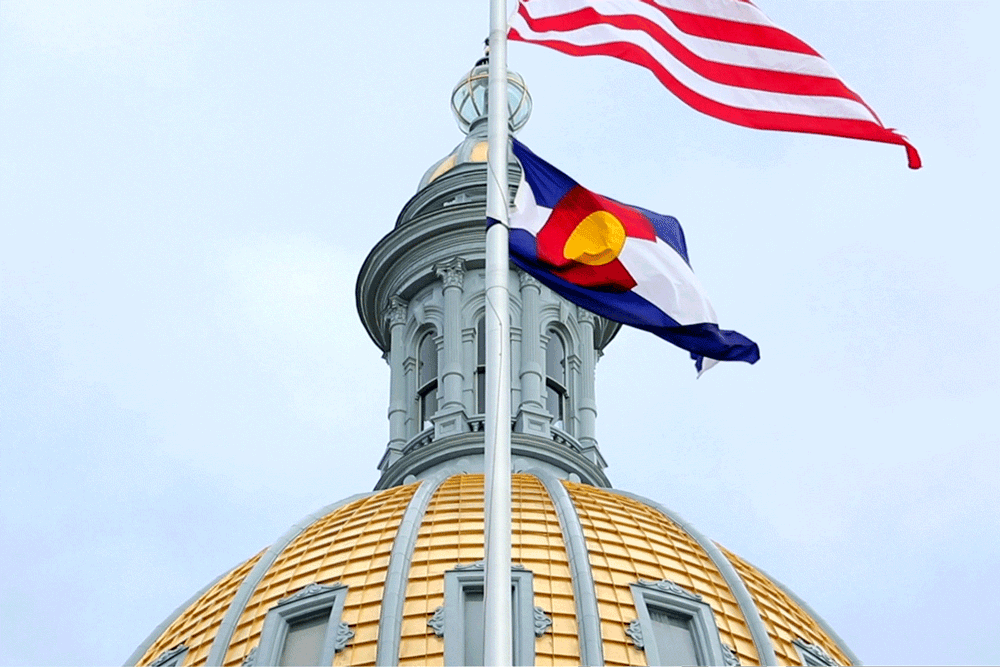
Throughout the Denver metro, phones are buzzing with political text messages. Mailboxes are stuffed with mailers. There’s a knock at the door.
And it’s only June.
With the primary elections on Tuesday, the legislative election cycle has hit an early peak this summer, including some unusually public and fierce fights among Democrats. Outside groups are spending heavily on a handful of statehouse races, and in some cases, party leaders have taken the extraordinary step of trying to get fellow Democratic lawmakers kicked out of office.
This year is notable for just how public and bitter the fight has become, said former Speaker of the House Terrance Carroll, a Democrat.
“The leadership of the parties have always tried to shape who runs and who gets elected,” Carroll said. “What you don't generally see is it being this visible. What's normally done quietly is being done very loudly, and very unapologetically” this year.
(Carroll is general counsel for an effort to end Colorado’s system of semi-closed primaries, a change opposed by members of both parties.)
With Democrats firmly in control of state government, outside groups that want to change what happens in the state Capitol are putting more money into Democratic primaries in June, rather than simply trying to sway the outcome of the general election in November.
A sampling of more than 20 outside groups have reported spending more than $7 million on state House and Senate campaigns this year for purposes like advertising and door-to-door campaigning, according to a CPR News analysis, with much of it focused on Democratic primaries.
That money largely comes from political nonprofits, often known as dark-money groups, that do not have to disclose their donors and are not allowed to “coordinate” with the candidates.
A showdown in Denver
In Denver, Rep. Elisabeth Epps faces a challenge from Sean Camacho, a commercial and government contracts lawyer who is on the ballot for the first time, though he’s made short election runs before. Despite being the challenger, Camacho has endorsements from Gov. Jared Polis and numerous other influential Democrats.
Epps, also a lawyer, leads the nonprofit Colorado Freedom Fund and was first elected two years ago. Her supporters include unions, abortion rights supporters, gun safety advocates and others.
But her website does not list endorsements from other politicians. Her opponents — including dark-money groups — allege she has isolated herself, with one mailer from a Latino advocacy group telling voters that Epps is “constantly fighting with her colleagues… instead of making progress for us.”
Epps defends her record. She passed seven bills in two sessions, and sued to force the legislature to obey transparency laws. She positions herself as a challenger to the status quo, pointing out that Democratic lawmakers didn't support her in her first run, either.
“We have folks who are not used to being held accountable. We are used to making rules for others and not having to follow them ourselves. We're used to being gatekeepers of information. We're used to allowing certain folks — lobbyists, corporations — to have access to us and others not,” Epps said. “And when someone comes along … and pushes that, it's predictable that this is their response.”
Epps argues that her criticism of U.S. support for Israel's war in Gaza has made her a target. That included an incident in which she sat in the House balcony seats and called out that another representative was “out of order” as he gave a speech defending Israel, a moment that came after Epps said “Free Palestine” while arguing for divestment from occupied territories.
For his part, Camacho rejected the idea that there’s a battle being waged between progressives and moderate Democrats.
“I consider myself progressive. I'm not as progressive as Elisabeth. But that doesn't mean moderate, either,” he said, naming focuses like health care, housing and abortion.
The outside spending has come from a variety of sources. Camacho has gotten support from groups like Servicios Sigue Action Fund, as well as from Fighting for a Stronger Colorado, which was formed earlier this year and received most of its funding from two other political groups. A representative didn’t immediately respond to a request for more detail on its funding sources.
Camacho also received outside support from a group called Let Colorado Vote Action. That group’s backers include Kent Thiry, the wealthy businessman who is behind an effort to change Colorado’s election systems.
“People are viewing the Democratic Party as the place where change can happen. Everyone wants to have their voice heard,” Camacho said. “I can't control what outside money spends or who they spend money on. I can just control my message and what I want to tell voters.”
No groups have reported spending money on Epps’ behalf. The candidates also are fundraising on their own, with Camacho bringing in significantly more money.
Business groups, unions ramping up spending across the metro
The Epps-Camacho race is not the only legislative primary where outside money is pouring in. Other races have seen even more reported spending.
In Jefferson County, two Democrats are running for an open House seat. Kyra deGruy Kennedy has worked in nonprofits and in politics, while Rebekah Stewart is a music therapist and a Lakewood City Council member.
The outside groups have reported spending $400,000 on the race, all in support of Stewart. DeGruy Kennedy says that money represents conservative and business interests interfering in a Democratic fight.
“The corporate interests see this sort of slate of folks who have track records of fighting for people over profit as a huge threat. And so they're trying to cozy up to candidates who are going to do what they want them to do,” she said.
Much of the outside money in the race came from A Whole Lot of People For Change, which describes itself as supporting “pragmatic candidates of all political parties.” A spokesperson didn’t immediately respond to a request for comment. The group has reported receiving hundreds of thousands of dollars from business groups like One Main Street and organizations in the construction industry. It has spent more than $1.5 million in various races.
Stewart pushed back on the idea that she would be more business-friendly than deGruy Kennedy, saying they shared goals. Each candidate contends that she has more relevant experience than the other. And both said they didn’t like the influx of outside money in the race.
“The amount of money that is being spent … quite frankly, overshadows our ability as candidates to do the work and reach out and talk to our own voters,” Stewart said.
Left-leaning groups are also spending money. Most notably, Colorado Labor Action has reported spending more than $1 million this month across various races.
That may be a key factor in another Denver seat, HD-4, where Rep. Tim Hernández is looking to win his first election after being appointed to the seat. Hernández has received more than $200,000 in outside support from labor and education groups. But his challenger, Espenoza, has drawn significantly more outside support from groups like A Whole Lot of People for Change.
In Aurora, a state Senate primary between Rep. Mike Weissman and Idris Keith has drawn intense spending too, almost entirely on behalf of Keith. A group called Representation Matters IEC, which is dedicated entirely to supporting Keith, has reported spending more than $800,000.
Outside money sends a message about outside money
The outside spending has accelerated in recent weeks, including in races in Arvada, Adams County, Arapahoe County and Fort Collins.
Amid that tornado of opaquely funded texts and postcards, one of the groups has taken a new approach. The Working Families Party’s political arm has sent out text messages that don’t oppose or support a particular candidate.
Instead, the messages link to a website that lays out what other outside groups are spending on each of the contested races.
Editor's Note: This story has been updated with information about former Speaker Terrance Carroll's work on Initiative 310.









